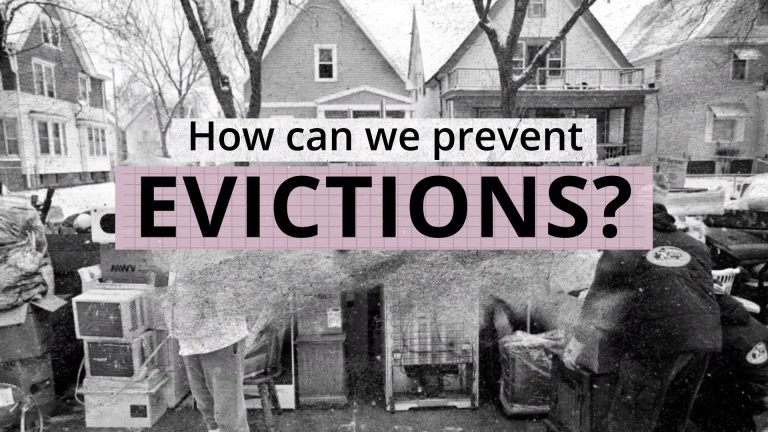Tenants in south Minneapolis recently won an important victory in the pursuit of justice. It may be the most recent case to reveal the substandard housing conditions of many low-income renters, but it’s hardly an isolated situation.
Even as we are encouraged by this court ruling, we must recognize that lawsuits alone cannot create the systematic changes and market conditions that will increase fair access to decent and affordable rental housing. To accomplish that, we must focus on the failures of the rental housing marketplace and the needs of the people who navigate within it.
Renters make up half of all residents of the City of Minneapolis. The burden of renting in a tight housing market, combined with stagnant or declining incomes, has never been heavier. More than 50 percent of renters spend more than a third of their income on housing. This high cost burden, combined with the exploitative practices of some landlords, can lead to families with no place to live. In certain Minneapolis ZIP codes, a jaw-dropping 46 percent of renter households experienced an eviction filing in the past three years.
In the eye-opening new book Evicted, Matthew Desmond argues these failed markets lead to devastating consequences for families and communities. He concludes, “Eviction is a cause, not just a condition, of poverty.”
What will it take to move toward fair access to decent affordable rental housing?
Look beyond the familiar remedy
The good news is that solutions are well within our reach. The first step is to look beyond the familiar remedy of simply constructing more affordable housing. Building is certainly one key strategy, and so are subsidies. It is increasingly clear, however, that we cannot build or subsidize our way out of this problem. As Mayor Betsy Hodges recently noted, since 2000, Minneapolis has lost 10,000 units affordable to households with incomes below $43,000 a year.
What has been missing from the conversation is the fact that the vast majority of low-income and cost-burdened households live in units offered by the private sector, not in housing provided by charitable groups or the government. That’s why we need to direct greater attention to improving the availability and quality of that housing stock throughout the region. An increasing number are either in disrepair or in danger of getting converted to higher-priced rentals, which would then displace low and moderate-income residents. Engaging the private sector and investing in this market can preserve affordability in the long term.
We must recognize that adequate affordable housing is an essential part of the equation for success—for the entire region and all of its people wherever they live, work or play.
Everyone has a role to play. Local governments can educate landlords and tenants on their rights and responsibilities, and they can provide proactive licensing and inspections oversight, timely remediation, and enforcement when required. Neighborhoods can embrace and advocate for tenants, engage landlords and city housing officials as partners, and promote a welcoming community for all. Landlords can treat their tenants with dignity, as required by law, and collaborate with the city and community; to do otherwise likely triggers more regulation and suspicion of their business as a whole. Legal advocates and an increasingly innovative housing court can help parties avoid unnecessary litigation and ensure justice is fair and swift to protect families and hold parties accountable.
Collaboration is transformative
We applaud some of the efforts already under way to advance this collective approach in Minneapolis. We’ve seen how transformative it can be when neighborhoods, landlords, government, advocates, legal services and the courts come together to learn from each other. Organizations such as HousingLink offer support to tenants and landlords, as well as a path to a more transparent rental marketplace focused on quality sustainable, affordable homes for all. We intend to continue to support this work and encourage others to learn from these experiences.
If our region and state are to grow and prosper, we must recognize that adequate affordable housing is an essential part of the equation for success—for the entire region and all of its people wherever they live, work or play. Stable housing means more children will do better in school, and their parents will have a better shot at maintaining their jobs and escaping the cycle of poverty. This, in turn, benefits us all.
In securing their victory in housing court, the tenants and their allies had the courage to bring an invisible problem to light. Now we need the collective wisdom to do our part to ensure fair access, quality, and expanded opportunities for more affordable housing throughout the region.
This piece was originally published on MinnPost.
Related Links:
Minnesota Housing Partnership Report: “Sold Out”
Star Tribune: Hot Market for Buyers is Driving Loss of Affordable Rentals in Twin Cities
Star Tribune: Twin Cities Group Creates $25M Fund to Preserve Affordable Housing


